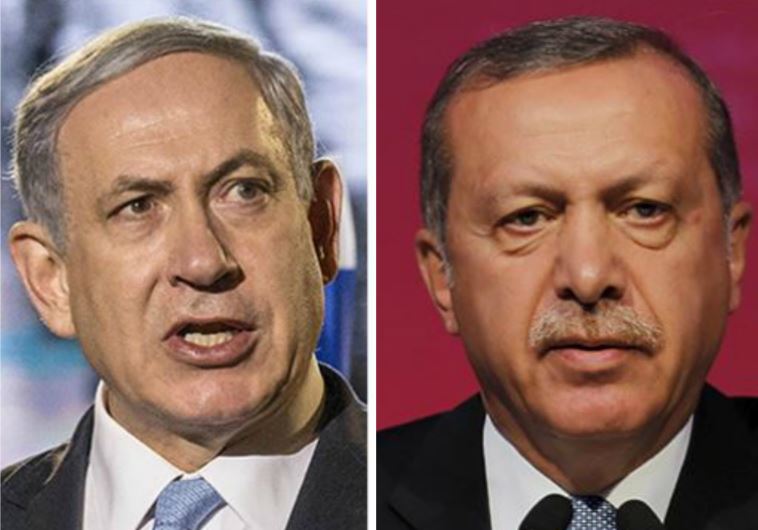Analysis: Israel-Turkey thaw may be only temporary
Israeli expert: Once the crisis with Russia passes, “Turkey will resume their old ways, including the bitterly anti-Israel dimension.”
 Israeli Prime Minister Benjamin Netanyahu and Turkish President Recep Tayyip Erdoğan (photo credit: GERARD FOUET / AFP)Updated:
Israeli Prime Minister Benjamin Netanyahu and Turkish President Recep Tayyip Erdoğan (photo credit: GERARD FOUET / AFP)Updated: